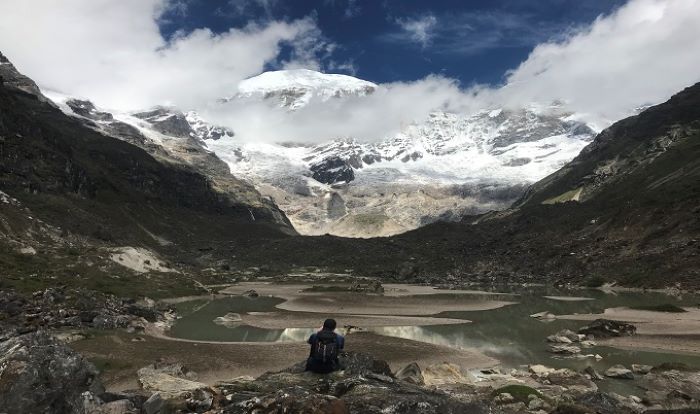Education
Glacial Flooding Threatens Millions Globally

Fifteen million people around the world are at risk from flooding caused by glacial lakes, with just four countries accounting for more than half of those exposed.
An international team of scientists led by Newcastle University has produced the first global assessment of areas at greatest risk of Glacial Lake Outburst Floods and identified priority areas for mitigation.
As the climate gets warmer, glaciers retreat and meltwater collects at the front of the glacier forming a lake. These lakes can suddenly burst and create a fast-flowing Glacial Lake Outburst Flood (GLOF) that can spread over a large distance from the original site – more than 120 km in some cases. GLOFs can be highly destructive and damage property, infrastructure, and agricultural land and can lead to significant loss of life.
The number of glacial lakes has grown rapidly since 1990 as a result of climate change. At the same time, the number of people living in these catchments has also increased significantly.
The research team looked at 1,089 glacial lake basins worldwide and the number of people living within 50 kilometres of them, as well as the level of development in those areas and other societal indicators as markers of vulnerability to GLOFs. They then used this information to quantify and rank the potential for damage from GLOFs at a global scale and assess communities’ ability to respond effectively to a flood.
The results highlighted that 15 million people live within 50 km of a glacial lake and that High Mountain Asia (which encompasses the Tibetan Plateau, from Kyrgyzstan to China), has the highest GLOF danger, with 9.3 million people potentially at risk. India and Pakistan have around 5 million exposed people – about one third of the global total combined.
Lead researcher, Caroline Taylor, a doctoral student at Newcastle University, said: “This work highlights that it’s not the areas with the largest number or most rapidly growing lakes that are most dangerous. Instead, it is the number of people, their proximity to a glacial lake and importantly, their ability to cope with a flood that determines the potential danger from a GLOF event.”
The research, which is published in Nature Communications, also highlights Peru as one of the four countries, along with India, Pakistan and China, that account for more than half of the number of people worldwide exposed to potential danger from glacial lake flooding. The research team point to the relative lack of research on the danger from glacial lakes in the Andes and say that further research is urgently needed to better understand the potential GLOF danger on a local level in this area due to the high number of people living in proximity to glacial lakes and their reduced capacity to cope with the impact of a GLOF.
Dr Rachel Carr, Head of Physical Geography at Newcastle University and a co-author, said: “Understanding which areas face the greatest danger from glacial flooding will allow for more targeted and effective risk management actions which in turn will help minimise loss of life and damage to infrastructure downstream as a result of this significant natural hazard.”
Separately, Newcastle expertise will also be central to a major new research project looking at retreating glaciers and the impact on depleting water resources in the Andes. The work will improve our understanding of how snow and glacial ice are stored at high altitudes in the Andes and help local communities and governments develop adaptation and mitigation plans to manage water resources as our climate continues to change.
Source – Newcastle
-
Auto1 year ago
Honda Marine Debuts All-New BF350 Outboard Company’s First V8 Motor Available Commercially, Flagship Model Offers Premium Power and Unparalleled Performance for Extraordinary Boating Experiences
-
Lifestyle1 year ago
2023 Nike World Basketball Festival Brings the Best of Basketball Style, Culture and Community
-
Auto1 year ago
New Features Further Increase Desirability Of Bentayga Range
-
Lifestyle1 year ago
Nike Debuts the ISPA Link Axis, an Exploration Into Circular Design
-
Auto1 year ago
Honda and Acura Electric Vehicles Will Have Access to Largest EV Charging Networks in North America Aided by New Agreements with EVgo and Electrify America